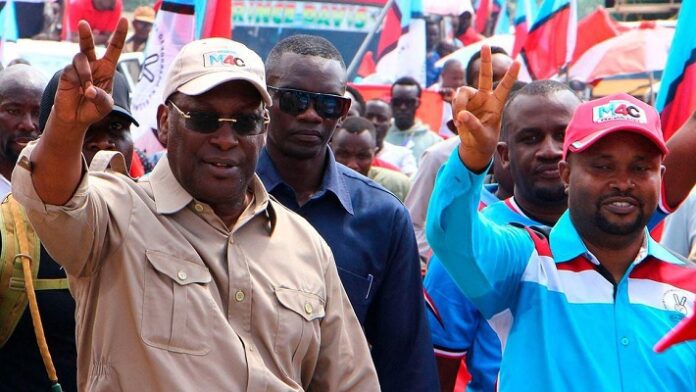In the largest public demonstration since the government lifted a ban on opposition political rallies in January 2023, thousands of Tanzanians took to the streets in protest against proposed changes to electoral laws. Organized by Tanzania’s main opposition party, Chadema, the rally in Dar es Salaam precedes next month’s parliamentary debate on contentious electoral reforms proposed by the government.
Chadema leader Freeman Mbowe, addressing the crowd in Dar es Salaam, vowed that the protests were just the beginning and promised that they would spread across the country until the government addressed their concerns. Supporters clad in the red, white, and blue colours of the Chadema party chanted songs and carried placards demanding the withdrawal of controversial electoral bills, addressing rising living costs, and ensuring independent oversight for the 2024 local government elections.
Residents, regardless of political affiliation, joined the march in solidarity. Nassor Ali, a resident of the Buguruni neighbourhood, expressed his support, stating, “I am not a member of Chadema, but I support the cause they are fighting for, which is why I decided to join them.”
Tanzania is gearing up for its first presidential election in 2025 since the death of President John Magufuli in March 2021, leading to the ascent of his deputy, Samia Suluhu Hassan. Mbowe, critical of the proposed electoral reforms, argued that they failed to address concerns from the 2020 election, won by Magufuli in a landslide amid opposition claims of fraud.
Chadema has been advocating for constitutional reforms and increased independence for the electoral commission, advocating for these changes to be included in the upcoming legislative debates in February. Mbowe criticized the proposed reforms as “cosmetic,” with specific opposition directed at a measure that would allow President Hassan to directly appoint five of the ten members of the electoral commission.
The rally signifies a collective call for change in Tanzania, where opposition activists, such as Mdude Nyagali, have voiced concerns about the proposed bills protecting the ruling party. President Hassan’s administration has seen a reversal of some of her predecessor’s hardline policies, indicating a shift towards a more inclusive political landscape.

